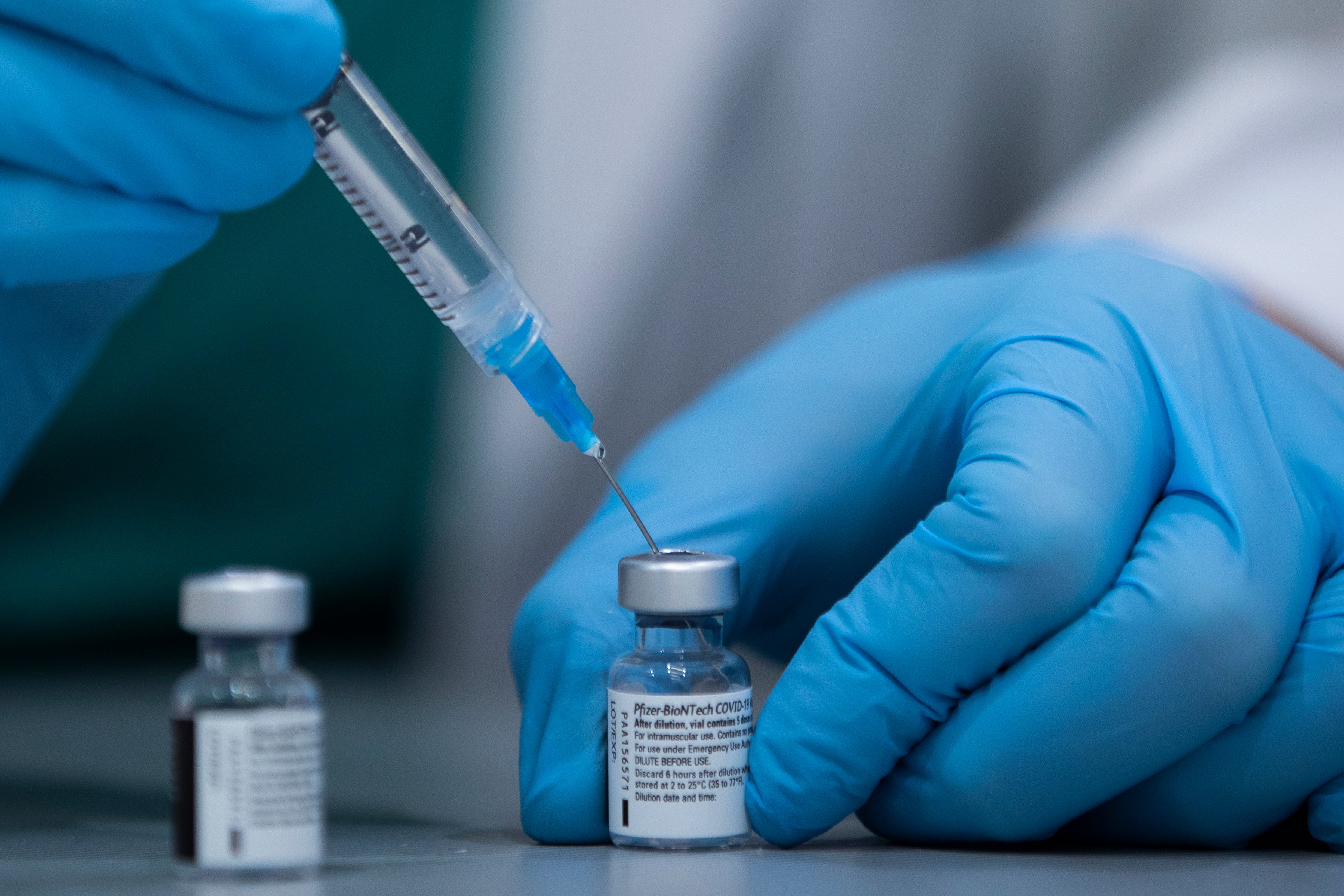Palestinians give first vaccines after Israel shares supply
The Palestinian Authority has administered its first known coronavirus vaccinations after receiving thousands of doses from Israel

Your support helps us to tell the story
From reproductive rights to climate change to Big Tech, The Independent is on the ground when the story is developing. Whether it's investigating the financials of Elon Musk's pro-Trump PAC or producing our latest documentary, 'The A Word', which shines a light on the American women fighting for reproductive rights, we know how important it is to parse out the facts from the messaging.
At such a critical moment in US history, we need reporters on the ground. Your donation allows us to keep sending journalists to speak to both sides of the story.
The Independent is trusted by Americans across the entire political spectrum. And unlike many other quality news outlets, we choose not to lock Americans out of our reporting and analysis with paywalls. We believe quality journalism should be available to everyone, paid for by those who can afford it.
Your support makes all the difference.The Palestinian Authority administered its first known coronavirus vaccinations on Tuesday after receiving thousands of doses from Israel, which launched its own vaccination campaign in December and has already inoculated more than a third of its population.
A Palestinian official confirmed that a first dose was given to a small number of medical workers. The official spoke on condition of anonymity because the PA does not consider this the official start of its vaccination campaign.
Israel began transferring 5,000 doses of the Moderna vaccine to the Palestinians this week, and the first doses will go to front-line medical workers. The Palestinians hope to acquire tens of thousands more doses in the coming weeks through a World Health Organization program.
Even if those deliveries materialize, however, it could take several months to administer enough vaccines to bring the outbreak under control in the Israeli-occupied West Bank and the Gaza Strip, which are home to more than 4.5 million Palestinians. Israel is on track to vaccinate its entire adult population by the end of March.
The WHO has expressed concern about the inequity between Israel, which is leading one of the world's most successful vaccination campaigns, and the Palestinian territories. Israel captured east Jerusalem the West Bank and Gaza in the 1967 war, lands the Palestinians want for their future state.
Rights groups say Israel has the obligation as an occupying power to vaccinate Palestinians. Israel denies having such a responsibility, and says its priority is its own citizens. Israel is actively providing vaccinations to its Arab citizens and Palestinians living in annexed east Jerusalem.
Israel secured millions of doses through agreements with drug makers Moderna and Pfizer, and has given the first of two doses to more than 3 million people out of its population of more than 9 million. It remains under lockdown, however, as the virus continues to spread at a high rate.
The Palestinians have not publicly requested vaccines from Israel and say they are securing their own supplies through the WHO and contracts with pharmaceutical companies. The Palestinian Authority acknowledged the receipt of 2,000 doses on Monday — the first batch of vaccines sent by Israel — but did not say where they came from.
Under the Oslo accords signed in the 1990s, the Palestinian Authority is responsible for providing health care in the territories it administers. But the interim peace agreements say both sides should cooperate in combatting epidemics.
The WHO said Monday that the PA would receive 37,440 doses of the Pfizer-BioNTech vaccine from mid-February “subject to approvals of supply agreements with manufacturers.” It said the PA would receive another 240,000 to 405,600 doses of AstraZeneca’s vaccine from mid- to late February subject to WHO emergency use approval.
The vaccines are being provided through COVAX, a WHO program designed to help poor countries acquire vaccines. Even if the Palestinians receive the upper limit of those deliveries, they would only be able to vaccinate up to 5% of the population of the West Bank and Gaza.